
The steps to achieve pro-environmental behaviour change?
by Livvy Drake
Would you like to affect more change in your work or personal life around pro-environmental behaviours? Find out the four steps to take to achieve this.

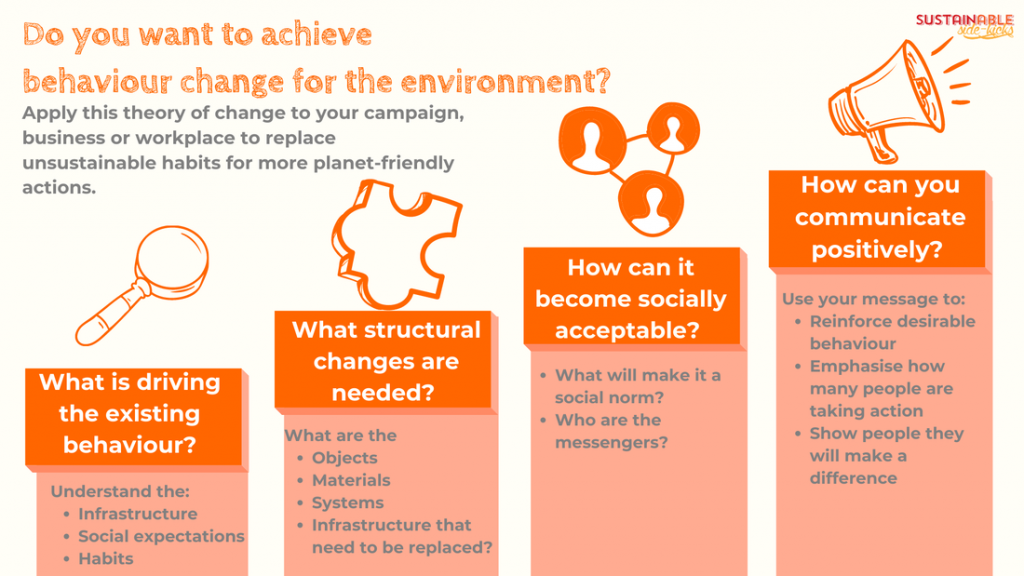
There are two things I often hear around individuals ‘unsustainable habits’, especially around the work I do at events or waste or plastics reduction which are.
- We just need individuals to change their behaviours
- They just need education
I disagree with both these statements.
Firstly because we need to understand what is driving people’s ‘non-planet friendly’ actions and address the root cause and secondly because information or education is not enough on it’s own.
Read my 5 reasons facts and stats are not enough blog for the details on this.
When I first got involved in environmental campaigning, after being a childhood eco warrior/worrier, I was perplexed as to why more people didn’t share the same values as I did and why the environmental movement had not inspired more people.
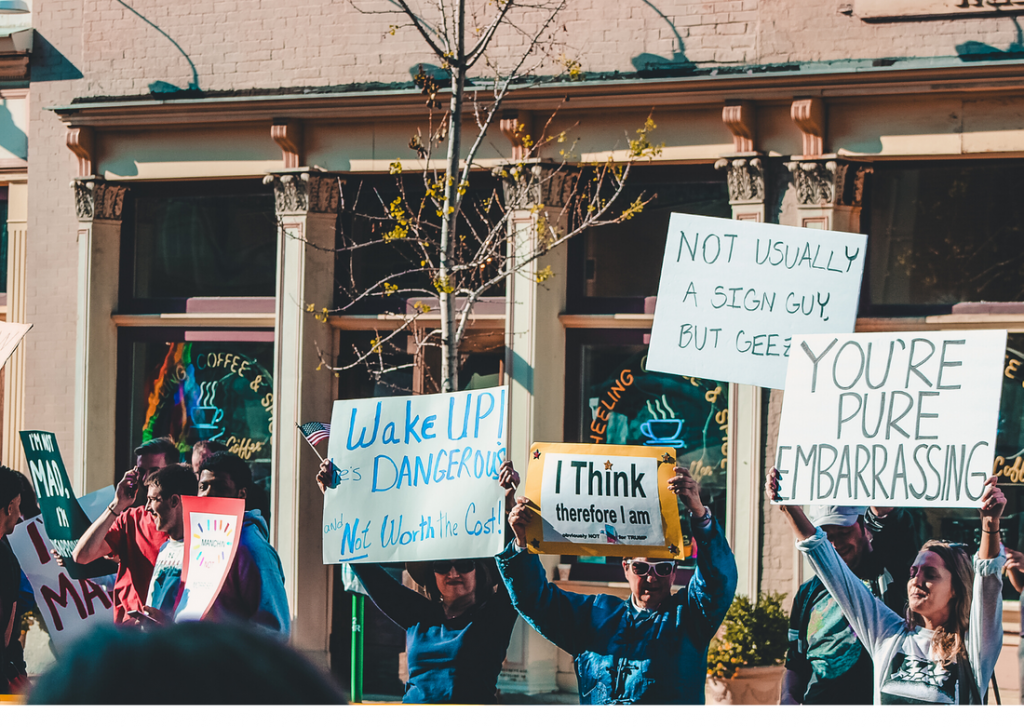
After working with a behaviour change consultant on festival waste reduction initiatives and studying behaviour change myself I realised that information was not enough and there are a lot of psychological and structural factors that drive our daily habits – many of which are not even conscious.
This doesn’t mean there is no hope for behaviour change, simply that it needs to be addressed differently. And these are the four stages I would argue for in this theory of change. You can apply this to your business, work colleagues, campaigns or event audiences

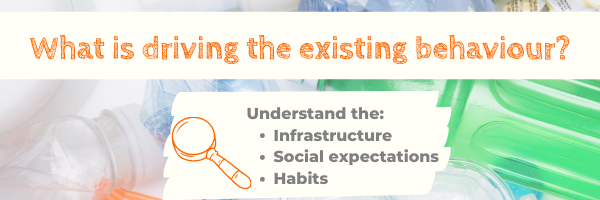
Understand what is driving the behaviour
Rather than telling people they are doing something wrong. Firstly understand the systems and structures that are leading to their behaviours. This can be done by undertaking research or simply spending time in the mindset of the target audience using tools from design thinking like creating a persona and journey mapping their day up around the behaviours.
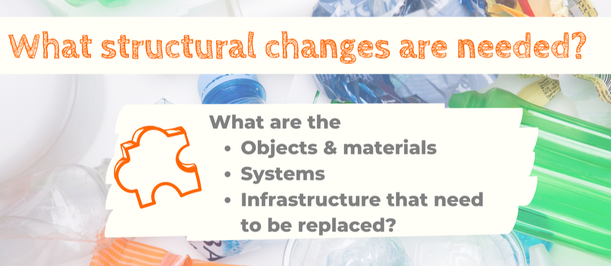
Address the systems and structures
Often it is the materials and objects that make our life more convenient that make our life less sustainable e.g. cars and takeaway packaging. So by addressing these we can change people’s behaviours without needing to change their values or concern for the environment. E.g. Lisbon has increased the availability of scooters and bikes and improved bike lanes to reduce car usage.

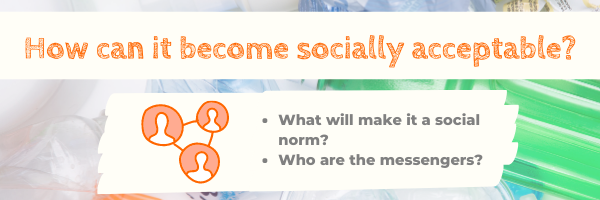
Change social and cultural expectations
Humans are wired to fit in with the tribe as a survival technique which means we look for cues from others as to how to behave. In order to make a pro-environmental behaviour socially acceptable, we must understand why it may not be and identify who can change this. Often it is people in authority that others look up to or people they want to be like. In one organisation people used takeaway packaging to eat food, from the canteen, at their desk. This was because taking a lunch break downstairs was perceived as not having enough work. To address this the MD started eating downstairs using a reusable plate and knife and fork.

Communicate the desired actions positively
Linked to the above principle, research (DEFRA 2008) has shown that people want to know that other people are taking action and their eco-friendly actions will make a difference. Telling people off or saying what NOT to do, reinforces the negative behaviour actually reinforces it. So framing a message to focus on the desired behaviour is essential.

How can you apply this to your own work?
Can you apply these to your work or projects? Would you like to delve more into how the human brain is motivated and how to have more engaging communications and impacts?
Our series of workshops on behaviour change are now available as replays where we delve into the theories, principles and tools for taking action.
And for more tips you can always join our newsletter.

You might also like:


